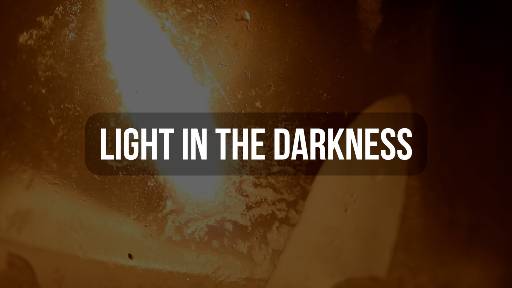-
Remember Who You Are
Contributed by Thomas Clawser on Jul 22, 2018 (message contributor)
Summary: Remembering who we are makes all the difference.
Cinderella Man tells the true story of boxing legend James J. Braddock (Russell Crowe), who made an incredible comeback during the Great Depression. Injured and arthritic, Braddock's promising career was cut short, and he had to go on public assistance when he couldn't get work at the docks in New Jersey. But when an opportunity came for him to get back in the ring and provide for his family, he took it—and his life changed.
Now fighting with a purpose, Braddock starts winning fight after fight. He inspires the struggling nation with his perseverance in the midst of hardship. As his comeback builds, he keeps remembering the faces of his children and his wife and how important it is for him to provide for them. Finally, Braddock wins his way into a showdown with the World Heavyweight Champion, Max Baer.
When the big day arrives, Braddock's wife sneaks into the bowels of the arena to find her husband in the locker room just moments before the fight. The look in her eyes sends everyone else from the room, and she marches straight up to Braddock. With a tender fierceness she locks her husband in her stare for the final words he'll hear before the big event.
"So, you just remember who you are," she says. "You're the Bulldog of Bergen, and the Pride of New Jersey. You're everybody's hope, and the kids' hero. And you are the champion of my heart, James J. Braddock."
[Remembering who we are makes all the difference. Braddock wins the fight. ]
I. INTRODUCTION
1. The Apostle Paul first visited Ephesus on his second missionary journey (Acts 18:19) in AD 52. He returned to the city on his third journey and stayed about two years, teaching in the synagogue first, and then in the Hall of Tyrannus (19:8-10). Some years later (AD 62), Paul writes an epistle, or letter, to be circulated among the churches at Ephesus.
2. The letter is written to believers in Ephesus, the most important city in western Asia Minor and the home of many who had come to Christ through Paul’s evangelistic efforts. A harbor town, located at the mouth of the Cayster River, the city also lay at the intersection of two major overland routes: the coastal road that ran north through Smyrna and Pergamum to Troas; and the western route to Colossae, Hierapolis, Laodicea, Phrygia and beyond.
3. This combination of water and land access grew Ephesus into the richest commercial trade center in all Asia. It’s large population (about 250,000), location and access led surrounding cities and villages to mark their mile-markers with the known distance to Ephesus.
4. Sadly, moral depravity plagued the city. People of Ephesus were influenced by idolatrous practices associated with the fertility goddess Artemis (Diana). They had even built a temple in her honor. The presence of witchcraft, astrology and occultism in Ephesus took a toll on believers in Ephesus. The temptation to fall into these practices was very strong.
5. Paul writes to encourage them to remind them of who they are, and of the great spiritual blessings God has given to them as his own adopted children.
[Remembering who we are makes all the difference. TWM to Ephesians 1.]
II. SPIRITUAL BLESSINGS IN CHRIST:
1. Paul writes to diffuse the influence of pagan culture on the believers at Ephesus. He addresses no specific sin in particular, but encourages them to live in a way that reflects their standing in Christ, reminding them of the spiritual blessings they have in Christ:
A. Chosen to be holy and blameless in God’s sight (4)
(i) Believers have an obligation to lead holy lives, because God’s love and grace has made it possible. It is not a matter of human ability or will, but an act of God through Christ that allows them to live a life that is blameless.
(ii) This is a strong message to those of us who blame our inability to live a holy life on “human nature” or our own “shortcomings”. The fact is, God has given us the ability; we must now be faithful in our pursuit of holiness.
(iii) We have no basis for dismissing our responsibility. God has provided all we need to live in the way he desires us to live.
[Remembering who we are makes all the difference. We are chosen to be holy and blameless.]
B. Adopted as God’s children, and called to praise him for his grace (5-6)
(i) Children should reflect their lineage. Believers in Ephesus were falling into all sorts of sin and debauchery, rather than reflecting the image of their heavenly Father.
(ii) Paul reminds them of their divine heritage; their remarkable family line. They are children of God, and they must reflect that heritage in all that they say and do.

 Sermon Central
Sermon Central


